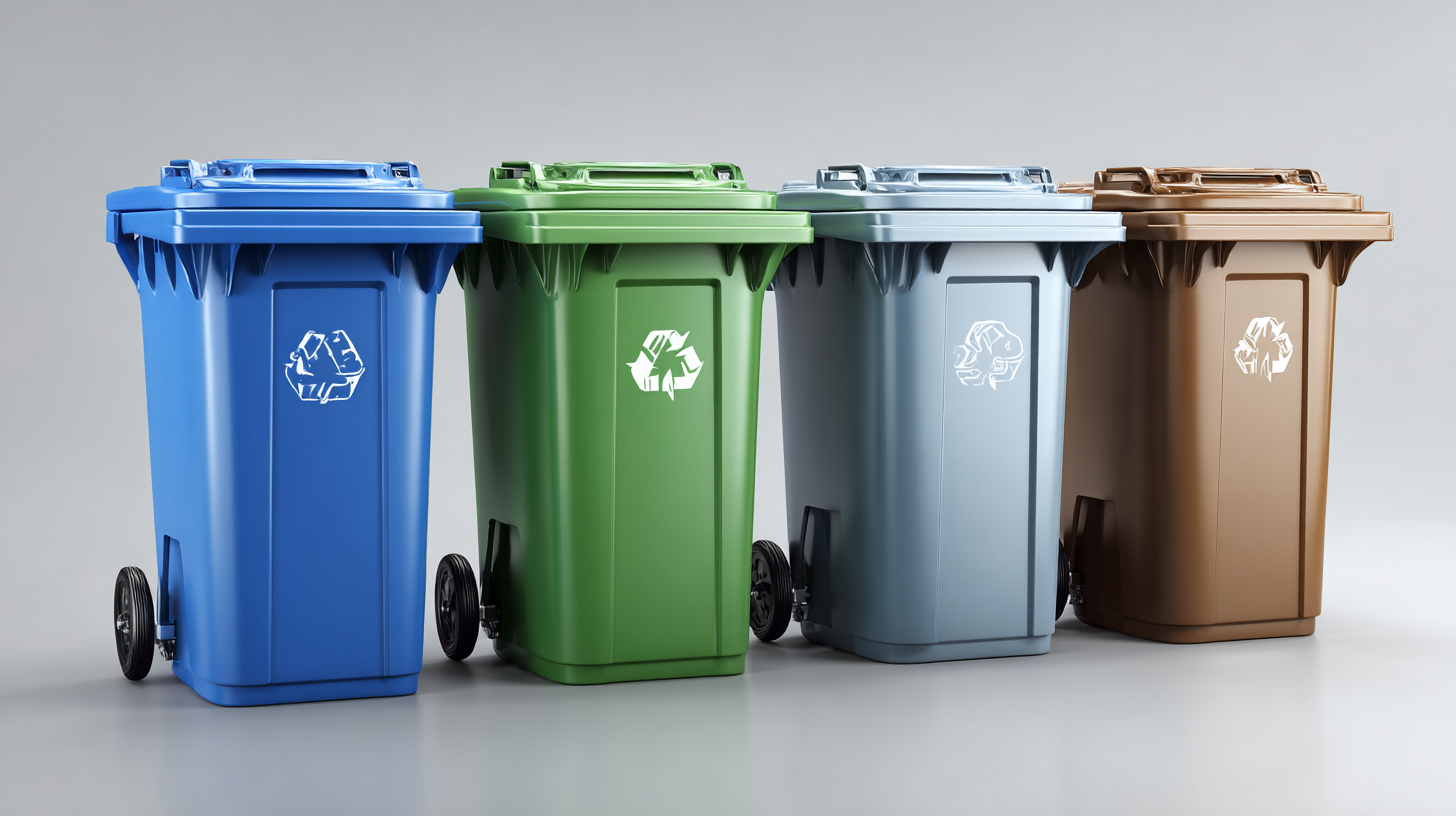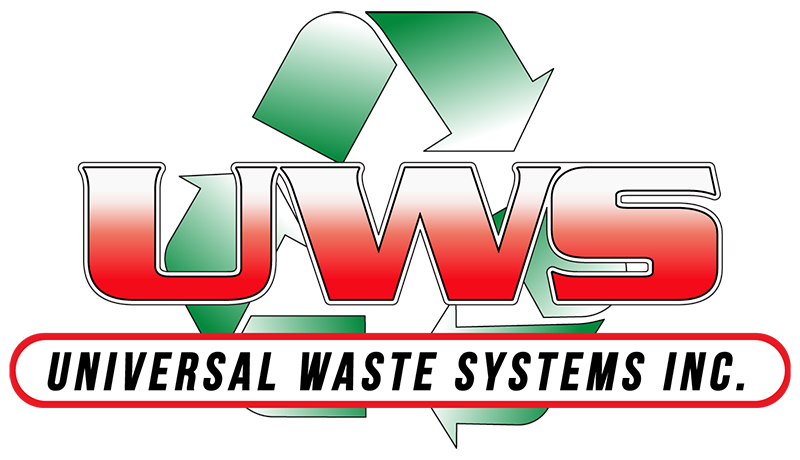Blog
Top Strategies for Maximizing Efficiency in Waste and Recycling Management
In today’s rapidly evolving landscape, effective waste and recycling management is more crucial than ever, both for environmental sustainability and economic viability. According to a recent report from the Global Waste Management Market, the sector is anticipated to grow from $330 billion in 2020 to over $500 billion by 2027, highlighting the increasing importance of efficient practices within waste and recycling operations. With this growth comes the need for businesses to adopt top strategies that not only streamline processes but also reduce costs associated with waste disposal and recycling. By focusing on aspects such as after-sales service advantages and maintenance costs, organizations can significantly enhance their efficiency, thereby creating a sustainable model that benefits both the environment and the bottom line. Adopting innovative approaches in waste and recycling can transform challenges into opportunities for improvement and profitability.

Innovative Digital Tools for Tracking Waste Generation and Recycling Rates
In today's increasingly eco-conscious world, maximizing efficiency in waste and recycling management is essential. Innovative digital tools play a pivotal role in tracking waste generation and recycling rates, making it easier for organizations to optimize their practices. According to the Environmental Protection Agency (EPA), effective waste tracking can lead to a reduction of over 30% in landfill usage. By utilizing advanced software systems, companies can gather real-time data on waste output, enabling them to identify trends and adjust their strategies accordingly.
One effective tip for organizations looking to enhance their waste management efficiency is to implement a comprehensive waste audit using digital platforms. These audits can identify the types and quantities of waste being produced, allowing organizations to develop targeted recycling initiatives. Furthermore, tech-driven solutions like mobile apps streamline communication and engagement with staff, ensuring everyone is informed about the organization's recycling goals and practices.
Another strategy involves using data analytics to measure recycling rates accurately. Reports indicate that organizations leveraging digital tools typically see up to a 40% increase in recycling rates within the first year. By setting measurable goals based on data analysis, companies can foster a culture of sustainability and accountability, ultimately leading to better resource management and cost savings.
Top Strategies for Maximizing Efficiency in Waste and Recycling Management - Innovative Digital Tools for Tracking Waste Generation and Recycling Rates
| Strategy | Description | Digital Tool | Efficiency Improvement (%) | Year Implemented |
|---|---|---|---|---|
| Waste Tracking Software | Utilizes real-time data to monitor waste generation. | EcoTrack | 25% | 2022 |
| Recycling Rate Dashboard | Visualizes recycling performance across multiple facilities. | RecycleInsights | 30% | 2021 |
| Mobile Reporting App | Enables field staff to report waste data on-the-go. | WasteReport | 20% | 2023 |
| Predictive Analytics Tool | Forecasts future waste generation trends. | WastePredict | 35% | 2020 |
| Inventory Management System | Tracks recyclable materials to optimize procurement. | GreenInventory | 28% | 2022 |
Enhancing Sorting Accuracy through AI and Machine Learning Technologies
In the realm of waste and recycling management, the integration of artificial intelligence (AI) and machine learning technologies is revolutionizing sorting accuracy. Traditional sorting methods often rely on manual labor, which can lead to errors and inconsistencies in the recycling process. By utilizing AI, organizations can implement advanced image recognition and spectral analysis to accurately identify different materials. This technology not only enhances sorting precision but also reduces contamination rates, which is crucial for producing high-quality recyclables.
Moreover, machine learning algorithms can analyze large datasets to optimize sorting processes continuously. Over time, these systems learn from previous sorting patterns, adjusting their criteria based on real-time feedback. This adaptability enables facilities to improve their efficiency and effectiveness, ultimately leading to higher recovery rates of recyclable materials. By embracing these cutting-edge technologies, waste management operations can significantly enhance their overall performance, reducing landfill waste and promoting sustainable practices.
Maximizing Efficiency in Waste and Recycling Management
Implementing IoT Sensors for Real-Time Monitoring of Waste Containers
The implementation of Internet of Things (IoT) sensors in waste management systems is revolutionizing how municipalities and organizations monitor their waste containers. By integrating real-time monitoring technology, waste management services can significantly enhance their efficiency and responsiveness. IoT sensors provide valuable data about fill levels, temperature, and the composition of waste, allowing for optimized collection schedules and resource allocation. This proactive approach not only reduces operational costs but also minimizes environmental impact by preventing overflow and pollution.
Moreover, real-time data collection allows for predictive analytics, enabling waste management authorities to anticipate trends and make informed decisions. For instance, by analyzing historical data on waste generation in specific areas, municipalities can adjust their waste collection routes and frequencies, ultimately leading to reduced fuel consumption and emissions. Additionally, the integration of smart waste containers can facilitate better sorting of recyclables, promoting higher recycling rates and fostering a culture of sustainability within communities. The future of waste and recycling management is undoubtedly moving towards a more data-driven, efficient model, thanks to the potential of IoT technology.

Best Practices in Data Analytics to Optimize Waste Management Operations
As the global digital waste management solutions market is projected to grow significantly from $3.27 billion in 2025 to $7.69 billion by 2032, an emphasis on data analytics is becoming essential for optimizing waste management operations. By leveraging data analytics, organizations can gain insights into waste generation patterns, recycling rates, and resource efficiency. This information enables them to identify areas for improvement and implement targeted strategies that can enhance operational efficiency while reducing costs.

Best practices in data analytics involve the use of advanced technologies such as machine learning and real-time monitoring systems. These tools allow companies to track their waste streams in real-time, making it easier to optimize collection routes and reduce transportation costs. Additionally, data analytics can facilitate better forecasting, enabling businesses to anticipate waste generation trends and proactively manage their waste disposal processes. As companies move from passive compliance to proactive innovation in waste management, integrating data-driven approaches will be crucial for achieving sustainable outcomes and meeting increasingly stringent environmental standards.
Leveraging E-Waste Solutions to Improve Recycling Efficiency and Reduce Landfills
In the quest for enhanced recycling efficiency, leveraging e-waste solutions stands out as a pivotal strategy. The global digital waste management solutions market is poised for substantial growth, with forecasts indicating an increase from $3.27 billion in 2025 to $7.69 billion by 2032, reflecting a robust compound annual growth rate (CAGR) of 13.0%. This growth emphasizes the urgent need for effective waste management strategies that incorporate advanced technology to streamline recycling processes, particularly in electronic waste.
Moreover, the e-waste recycling services market is also on an upward trajectory. Projected to reach $4.66 billion in value by 2025, this market is anticipated to escalate dramatically, achieving an estimated $9.15 billion by 2033 at a CAGR of 8.8%. Such statistics underscore the pressing challenge industries face in managing electronic waste, which continues to grow alongside rapid technological advancements. Innovative startups emerging globally provide crucial technical solutions for waste management, addressing the pressing need to mitigate the environmental impact of landfills and improve recycling efficiency across various sectors.
Request a Quote
Fill out the form below and one of our specialists will contact you to discuss your questions and needs.
